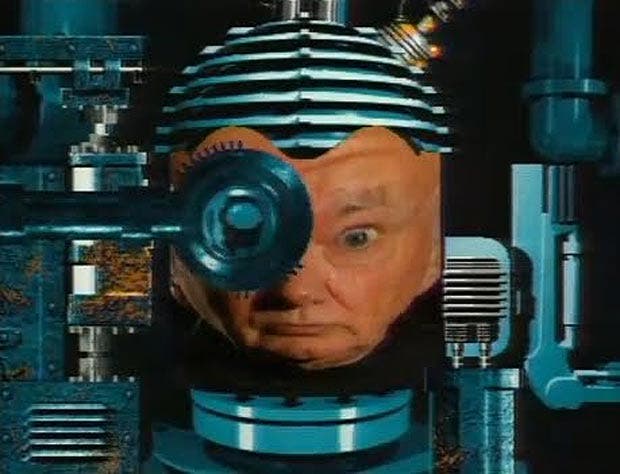GamesMaster: The Inside Story
From the archive: Dominik Diamond, Dave Perry and friends reveal what went on behind the scenes of the greatest games show ever made.
Every Sunday we present an article from our archives, either for you to discover for the first time or to get reacquainted with. This week, to mark the departure of the amazing Ellie Gibson from the Eurogamer editorial team, we give you her inside look at 90s favourite GamesMaster, an article typical of her incredible writing talents. We're going to miss you Ellie!
Craig Munro's 10-year-old heart was pounding in his chest. The unfamiliar controller trembled in his sweaty grip. He stared wide-eyed at the screen, too nervous to blink, too terrified to breathe. Beside him his elder sister, Kirsty, hammered the buttons on her own controller like a rabid pianist. Craig watched the numbers tick up: 2, 3, 4...
He thought of the letter that had brought him to this moment. The one he had written several months ago to the producers of GamesMaster, his favourite television show. "I drew an illustration of some guy from Nintendo World Cup on the NES scoring a goal," the adult Craig remembers today. "I thought that would draw them in."
He was right. The producers invited Craig and his friend, Steve, to travel up to London from their native Brighton for an audition. But Steve couldn't make it, so Kirsty went along instead. It was a simple twist of fate that would cast a longer shadow than anyone could have imagined.
...5, 6, 7...
As the count continued, Craig realised this had already been the most exciting day of his life. He arrived at the television studio only to discover it wasn't a television studio at all. "It was an abandoned power station," he recalls. "As a kid, just being allowed in a place like that was amazing."
Craig was introduced to his hero, GamesMaster presenter Dominik Diamond. They exchanged some footballing banter (Munro supports Rangers, Diamond is a Celtic fan). The experience was overwhelming and left a lasting impression on the young gamer ("He was really polite").
There were disappointments too. There was no sign of the GamesMaster himself, Patrick Moore. And Craig was informed he would not be playing Nintendo World Cup but a Mega Drive game, Evander Holyfield's "Real Deal" Boxing. "That was a shock to me because I was a Nintendo boy, not a Sega guy," he explains.
But Craig was too caught up in the glitz and glamour of video games television to complain. "The thing I was blown away by most was the catering," he says. "They gave me a little sticker that meant I could have as much free food as I wanted. So I had about 12 packets of crisps. It was amazing."
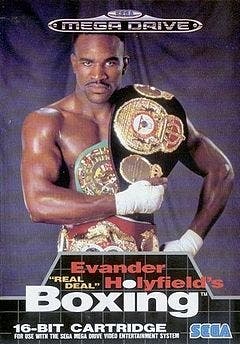
...8...
And now here he was, in the final round of "Real Deal", watching Kirsty valiantly but vainly trying to revive her fallen boxer.
...9...
Craig's whole life had been building up to this moment. He knew that now.
...10...
The screen flashed scarlet, and that was it. Craig had done it. He had secured the trophy most coveted by every 10-year-old boy in the land: a Golden Joystick.
"OK," said the producer. "Let's go for another take."
"What do you mean?" stammered Craig. "I won!"
His childish protestations fell on deaf ears. He was forced to play a rematch. Spurred on by having victory so callously snatched from his miniature grasp, Craig triumphed again.
But then came the call for a third take. Something inside Craig snapped like a Shatterproof ruler in the hands of a vigorous fifth former. This time, Kirsty won.
"OK," said the producer. "That's a wrap."
As he recounts the incident today, Craig's eyes flicker with the pain of a man who discovered the truth of the world's cruelty at too tender an age.
"Basically they shafted me out of a Golden Joystick," he says. "The cynic in me now realises they wanted the girl to win.
"Yeah," he adds bitterly, "I think they knew exactly what they were doing."
---
"You think you know what you're doing, but nobody really does," says GamesMaster creator Jane Hewland. "Nobody knows anything."
Episode one of GamesMaster was broadcast on 7 January 1992. It was the first time a television programme dedicated to video games had appeared on British screens. The show was a massive hit. This was the golden age of Sega and Nintendo, and the viewing audience loved the mix of live challenges, gameplay tips, interviews, reviews and jokes about cocks.
"If you try to be cool it's crap, isn't it? So we thought, 'Let's see if we can manage witty.'"
Cameron McAllister, director
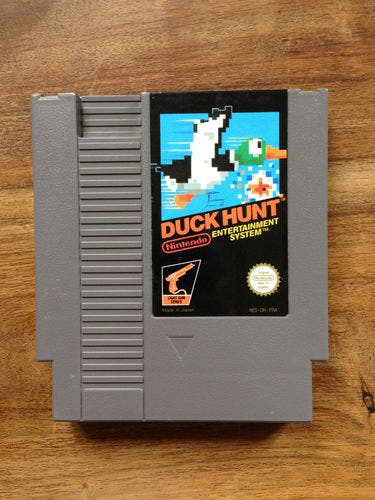
GamesMaster went on to run for seven series and 126 episodes. Today it is still regarded by many as the best games TV show ever made, including that one with Gaz Top and the other thing with the three girls in vests. But it was almost never made at all, according to Hewland.
She got the idea for the show after her son, Harry, asked for a Nintendo Entertainment System for his tenth birthday. "It had two games, Duck Hunt and Gyromite, and it hooked up to a television instead of a monitor," she recalls. "As a television producer, I looked at it on a TV and thought, 'There could be something in this.'"
Back then Britain was in the grip of a deep recession, just for a change. But Hewland noticed this hadn't affected the demand for video games. "One thing parents don't stint on in a recession is their kids; they stint on themselves. That's how I pitched it to the channels: there's advertising here because kids are spending huge amounts of money on these games."
That wasn't enough to convince channel executives there was also demand for a gaming TV show. "Everyone in television said it wouldn't work," says Hewland. "The people who made television either didn't have kids, or were out at work all day and never saw what their kids did."
She had a different perspective. "As a single mother I had to be Harry's mum, his dad, his friend, everything. So I played a lot of games with him. At the time a lot of mothers were addicted to games, actually. I had a competition with one other mum to see who could finish Psycho Fox first."
ITV turned the idea for GamesMaster down but it caught the attention of Mike Miller, the commissioning editor in charge of Channel 4's sports programming. "The only reason it got commissioned at all was that [Miller] was Canadian," Hewland says. "Video games had arrived in North America before they were here, and he got it. Nobody else did."
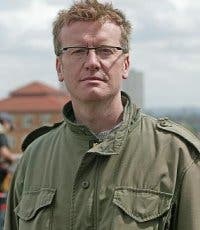
Although Miller was on board, the executives above him still needed convincing. To help with this, Hewland interviewed the guests at her son's eleventh birthday party on camera about their favourite games. She then filmed them playing and edited the footage together as a kind of pilot. "Suddenly I think Channel 4 could see that every little boy would be hit by this," she says.
The channel gave Hewland a budget of £10,000 per episode, a tiny amount of money by television standards. She couldn't afford to pay for experienced professionals to work on the show and says she would have struggled to attract them anyway: "You couldn't get anybody who knew anything about television to work on video games."
So Hewland ended up employing people like Cameron McAllister, who found himself directing a pioneering television series at the age of 24. "Jane gave me my first job as a trainee TV director straight after university," he remembers today. "She thought I'd been to film school. I hadn't, but I didn't disabuse her of that.
"I think Jane is quite committed to that raw energy. She made her mark finding innovative ways of doing things cheaply. She didn't want to go the old-fashioned, establishment way of making things that would be really slow and expensive, with silly old duffers. She wanted to go guerrilla."
The first series of GamesMaster was shot in a disused church in the East End of London. Aside from a smoke machine and a laser light, there was little in the way of set dressing. "We used to have to do the interviews about three times because we didn't have enough cameras," McAllister recalls.
"One of the first decisions we made was that we wouldn't try to be cool. Because we couldn't possibly pull it off, and it would just end up being horribly naff. If you try to be cool it's crap, isn't it? So we thought, 'Let's see if we can at least manage witty.'"
Hewland felt GamesMaster should have an underground, anti-establishment feel, reflecting the way video games were perceived by wider society at the time. "The idea was not to make one of those shows that have a sparkly children's presenter," she says. "Children's programming kills credibility stone dead. It's clean, and video games generally aren't clean. They cater to the worst impulses.
"We thought, 'We have to shock. We have to break convention. Parents must not approve of us. In fact, they must hate us and suspect us.'"
Hewland knew that getting the right person to host the show was key. It had to be someone young. Someone who knew about games. Someone who was sharp, smart, irreverent, subversive and effortlessly hip.
Most of all, it had to be someone who could do knob jokes.
---
"No one was a bigger dick during the 90s than me," says Dominik Diamond.
His voice is a little crackly coming down the line from Canada, where he now resides. But his Scottish accent is still as thick as it was on the audition tape Jane Hewland watched two decades ago.
Diamond was a gamer long before he got the GamesMaster gig. "When I was about 12 my mum brought home a ZX Spectrum," he says. "She said, 'Look, we've got a computer for you guys to do your homework on,' which was very sweet of her and completely naive.
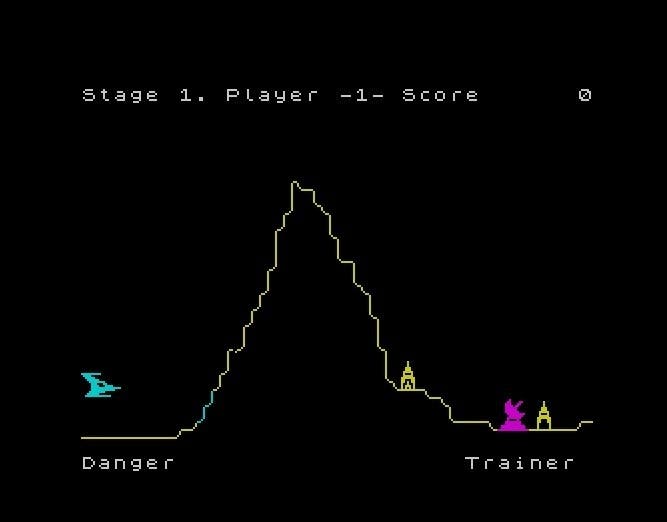
"The first game we had was the wonderfully named Penetrator from Melbourne House. Then there was Manic Miner, Daley Thompson's Decathlon, Horace Goes Skiing... So yeah, we were fighting over the Spectrum from when I was a teenager."
Diamond went on to study drama at Bristol University. After graduating he started gigging as a stand-up comic and auditioned alongside dozens of other hopefuls for a role on Channel 4 show The Word. He didn't make the cut, but the producers passed the audition tapes on to Hewland when they heard she was looking for a presenter.
Hewland viewed the footage with her son. Knowing she was creating a show for 10-year-old boys, it made sense to trust the judgment of a 10-year-old boy when it came to casting. "He seemed to find Dominik's jokes incredibly funny, so that was it really," she says.
Diamond was called in for a screen test. "I went to this little church and did a commentary on a game someone was playing on a Game Boy," he says. "I used lots of innuendo, which apparently they quite liked, and that became the theme of the show for the next eight years."
That may sound like an exaggeration, but watch clips of GamesMaster today and the sheer volume of dirty jokes in the programme is astonishing - especially considering it was meant to be a kids' show. However, this was all part of Hewland's plan to deliver something for everyone.
"There's a long tradition of British people finding innuendo hilarious."
Jonny Ffinch, producer
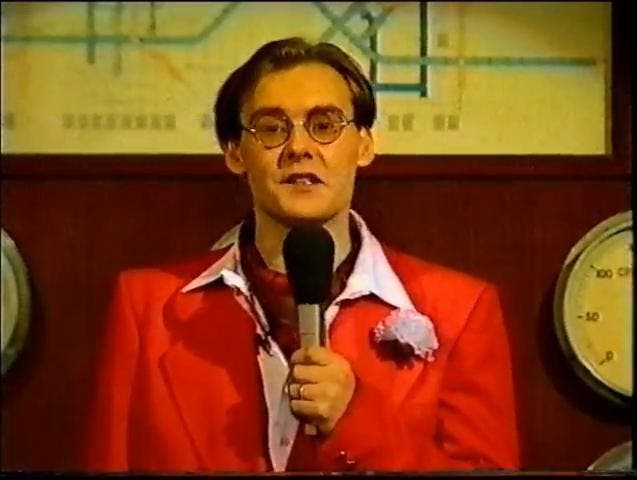
"It was supposed to go over the heads of the children, but the adults were supposed to find something in it that was just for them," she says. "The more it had credibility with adults, the more it had credibility with kids."
"Dominik was a cheeky, naughty schoolboy like the rest of us," says McAllister. "We were smutty little boys who liked playing computer games. I think that struck a chord with our viewers."
The dirty jokes were all Dominik's work, according to Jonny Ffinch. He joined the GamesMaster team during season three and went on to produce the next four series. "Obviously there's a long tradition of British people finding innuendo hilarious," he observes.
"We would say, 'What are we going to do now?' and Dominik would say, 'How about a shot of me sitting here looking angry, saying, "Once again, the girls have given me crabs..." And then we pull to a wide shot of some actual crabs on the table, that we're going to eat.' And we'd all laugh."
Watching GamesMaster today, the endless innuendo gives the show the feeling of being one big boys' club. But not only was Jane Hewland at the helm, plenty of the production staff were female, as Ffinch recalls.
"One of them had the sheer temerity to come up to me and say, 'I think this is all just a bit sexist,'" he says. "We started arguing about it. And that's how I met my wife."
No one interviewed for this article could recall any official complaints being logged about the filth, either from viewers or Channel 4 executives. "A lot of the time they never even watched it before it went out," says Diamond. "It slipped under the radar for many years."
However, Ffinch does remember one incident that occurred after the filming of a Christmas special. "Dominik said, 'Now it's time for me to prepare the vegetables.' Because we were quite grown up, we got him to hold two Brussels sprouts and a carrot up in the exact shape of a penis and two balls.
"Channel 4 rang me to discuss it. The final decision was that if we got any calls, we'd say that was just the way he happened to pick up the vegetables. That's the beauty of innuendo, isn't it? If you object to it, you're the one with the dirty mind."
While no one seemed to mind the incessant references to joystick-waggling, GamesMaster did receive plenty of complaints. But these were all about the level of violence in the video games shown, according to Hewland. "In those days a game like Mortal Kombat was quite shocking," she says. "It seems crazy to say that now, because they were only 16-bit, but we'd never had graphics that realistic."
McAllister recalls a game called Heimdall, which featured a Viking girl tied to a set of stocks by her hair. "You had to throw axes at her head to cut the braids and release her," he says. "And of course every other axe would land straight in her head, which we all thought was hilarious."
"That was outrageous," says Hewland. "We had all these mothers writing in." But she took that as a good sign: "If we didn't get onto Right to Reply at least once a series, we weren't doing our job right."
"If we didn't get onto Right to Reply at least once a series, we weren't doing our job right."
Jane Hewland, creator
Hewland's job, as she saw it, was to embrace and promote the idea of gaming as a geeky, exclusive subculture, and also as a competitive sport. This was the thinking behind the show's challenges, which saw hardcore gamers battling to complete rock-hard objectives in front of a live studio audience.
Alex Verrey was 13 when he took on a challenge in the second episode of GamesMaster. His mission: collect 150 rings in Act 2 of the Green Hill Zone of Sonic the Hedgehog. (The target was originally set at 130 rings, but the number was increased after Verrey made the mistake of telling the producers he could manage that easily.)
"I took it very seriously," he says. "There had never been anything like this before. This was before the internet, before GameFAQs or YouTube. You had to rely on your own game-playing skills. So I just tore that stage apart to figure out how quickly I could get all those rings and where the sacrifices needed to be made."
Verrey was victorious. The reward for his efforts was the iconic GamesMaster trophy, a Golden Joystick.
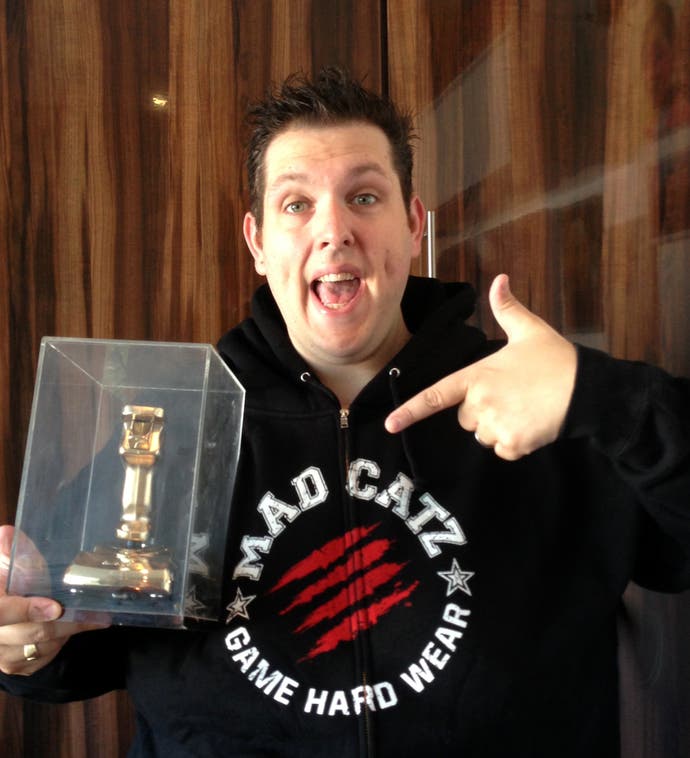
"I was absolutely thrilled. As a kid, you don't realise you're actually being given a Kempston joystick that's been spray-painted gold. A lot of my family members were disappointed I didn't get anything more substantial, but it opened the door for an entire career for me."
Verrey went on to appear in another Hewland show, Gamesworld, as gaming guru Big Boy Barry. Today he is the global PR director for peripheral manufacturer Mad Catz.
"GamesMaster was an institution," he says. "There had never been a show like it and there has never been a show like it since."
Like so many viewers, Verrey has plenty of fond memories of the programme. But what sticks in his mind the most? "I'm sorry to bring this up again, but it would have to be the Dave Perry feud," he says. "It was legendary."
---
The Revolver Tattoo Rooms are situated on the corner of Market Street and Castle Lane in Torquay, Devon. The proprietor trained at the Bath Academy of Art before returning to his hometown and opening up shop in 2007. Anyone who played games in the 90s will probably recognise him, even though he no longer sports his trademark bandana.
Today he's known as Dave 'The Pistol' Perry. But a couple of decades ago, he went by a different moniker.
"One day I was playing NHL '93 and Public Enemy was playing in the background," he says. "Chuck D sang something like, 'Once again it's me, the rhyme animal.' And I started shouting across the office, 'Once again it's me, the games animal, the unstoppable...' Because I was really good at this game. No one could beat me at it.
"And that just stuck. I became the Games Animal from then on."
Back in the day, Dave 'Games Animal' Perry was one of an extensive cast of journalists drafted in to commentate on the GamesMaster challenges. But he stood out from the start, the result of a conscious decision on his part.
"Round about that time, the World Wrestling Federation was big and so were its stars - Hulk Hogan, Mr Perfect, people like that," he says. "So I thought, 'That's it. I'll be this boasting, cocky character, and that will get me noticed.'"
It worked. Perry's arrogant one-liners and confident swagger made him the commentator viewers loved to hate. The daft headwear helped too.
"The bandanas? I fell into those," says Perry. "During the Gazza years everyone had this very short haircut. I was bored with mine and I was growing it out, but it looked rubbish. So I thought I'd wear a bandana, because they were in back then. I put it on and Cameron [McAllister] came over the earpiece and said, 'The bandana looks great, keep it on for the whole series.'" Perry ended up wearing it for five years.
"I saw GamesMaster as my baby. Then it turned round and bit me on the arse."
Dave Perry, Games Animal
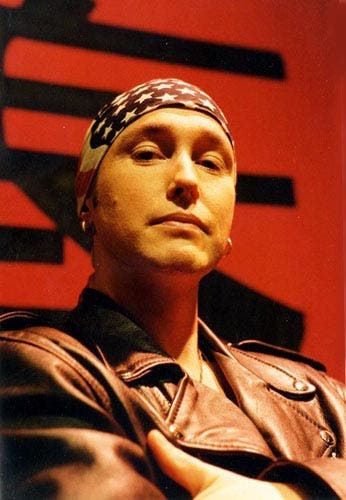
So how much of the personality viewers saw on screen was the Games Animal and how much was the real Dave Perry? "I suppose there was a bit of both. I would play up being overly cocky just because I enjoyed it. It was fun playing a character; it was more fun than just being yourself. But I guess, hearing from people who were around at the time, I was a little bit out of control."
Back then, Perry explains, he was editing magazines and playing in games competitions around the country, as well as appearing on GamesMaster. "I had a lot of people to be in control of and not a lot of time," he says. "The Games Animal probably helped me out a lot because it backed people down a little bit. But it also rubbed people up the wrong way."
One of those people was Dominik Diamond. Perry says they got on "brilliantly" to start with, but something changed during the filming of season two: "He had some problem with me, I don't know what it was. We never talked after that. We did all those seasons of GamesMaster together and we hardly said a word to each other."
"I'm not interested in fuelling that fire," says Diamond, when I ask him about the feud. "The way I treated Dave on screen is not something I am particularly proud of. It was perilously close to bullying. As much as we felt Dave was being a dick, with this whole Games Animal thing and thinking the wheel was square before he got his hands on it - I think we humiliated the guy. Yes, at the time, he was a dick. But jeez, no one was a bigger dick during the 90s than me."
I ask Diamond if this "You were a dick, but so was I" concession is a kind of apology?
"We were both dicks, but I was slightly funnier," he says.
When I put Diamond's comments to Perry, he says he doesn't like the word "bullying" because, "It implies being downtrodden, and I never felt that." However, he adds, "Of course it was bullying. You've got to expect that if you're going to be cocky, but it was definitely bullying."
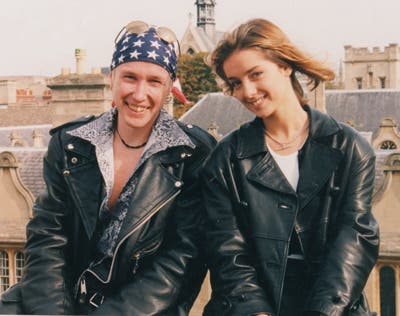
The feud came to a head during the filming of the 1996 GamesMaster Christmas special. The co-commentators took part in a quiz that included a round of questions about fighting games.
Producer Jonny Ffinch says that Perry came to him the night before the shoot and asked for the answers. Perry explained he had a book about beat-'em-ups coming out and didn't want to look stupid. If Ffinch didn't oblige, Perry said he wouldn't show up for filming the following day. "So like a complete coward I went, 'Oh s***, alright, maybe I'll be able to sort something out,'" says Ffinch.
"Jonny had a huge fit of guilt and told me," says Diamond. "I said, 'You've got to write more questions, that's ridiculous.' I was furious."
Perry's version of events is different. "I told Jonny Ffinch I didn't know whether I wanted to do the quiz because I had a book coming out. He said, 'Well, we really want to do the quiz,' so I went along and did it. Dominik had it in his head that I'd been pushing Jonny to fix the quiz, but that didn't happen."
According to Perry, joke answers were then inserted into the quiz in a bid to trip him up. But he made it to the final anyway, along with co-commentator Kirk Ewing. They were tasked with competing on the Cool, Cool Mountain course of Super Mario 64. Ewing lasted 26 seconds. Perry lost control and slid off after the first bend.
During the post-match analysis, a seething Perry declared he had been set up. A brief but bitter exchange with Diamond followed. The final shot of the episode is of Ewing and Diamond waving next to some mermaids while Perry stands off to one side, arms folded and legs crossed. He never appeared on GamesMaster again.
"Yeah, it was a setup," says Perry today. "No doubt in my mind." Two months previously, he says, he had written an article for Computer Trade Weekly magazine about the Nintendo 64. The console wasn't out until the following year. Perry felt the pre-release hype was ruining Christmas for the industry; people were holding out for the new machine rather than buying products on the shelves. He declared that he wouldn't be playing N64 until it was officially released in the UK - "So everybody knew I had not played this console or its games."
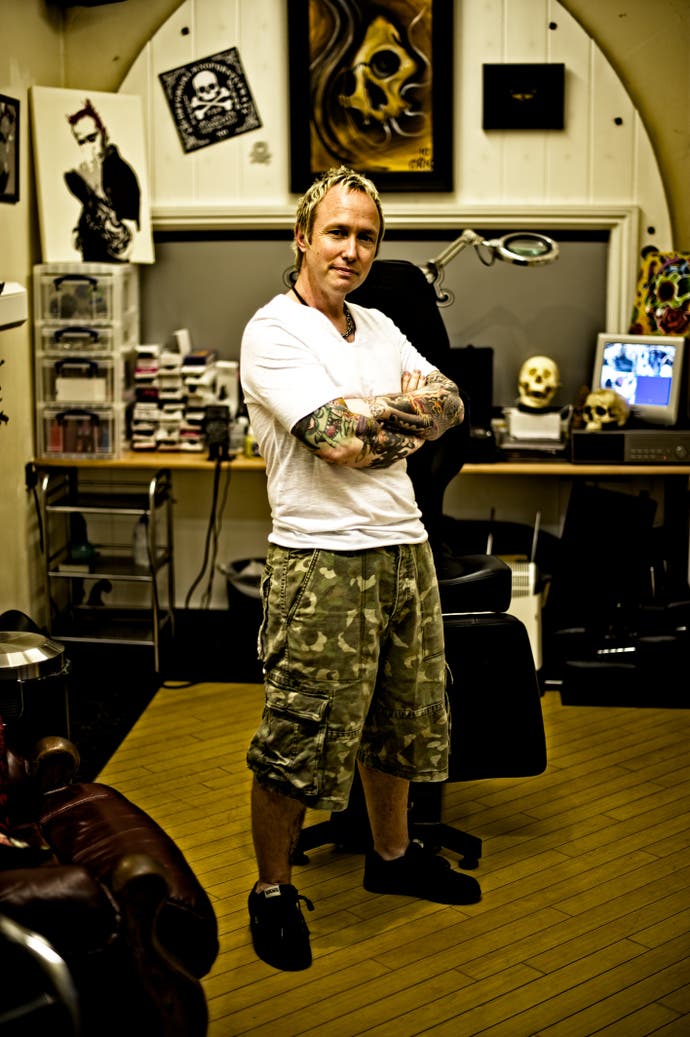
Perry says that when found out an N64 title had been chosen for the final showdown, he tried to walk off the set. However, he claims he was forbidden from using any of the company cars to get home. "I was stranded. So I thought, 'Sod it, I'll do my best.' But it was clear the whole thing had been set up so I had minimum chance of winning."
"Oh rubbish, absolute rubbish," says Diamond, when I ask him if it was a fix. "He wasn't set up. Kirk didn't give a s***. Kirk was stoned all the time. Kirk and I were goofing off all the time. Dave did all kinds of things behind the scenes to try and cheat, because he was the only person in the history of the show to take it too seriously. It was a bit of fun. Dave was hoist by his own petard."
"Poetic justice was served because Dave Perry lost," says Ffinch. "But quite fairly."
Perry admits he reacted badly to the incident, saying, "I probably should have just laughed. It's the fact I was obviously upset and angry. Nobody had seen me get beaten before and they liked that. I reacted ungraciously and that's what made it big news.
"I was just gutted because I really cared about GamesMaster. I saw it as my baby. Then it turned round and bit me on the arse."
Diamond has regrets about his own behaviour in the aftermath of the episode: "I made some disgusting comments about Dave. I did an interview with Edge magazine and said the most reprehensible things; unforgivable, nasty things which he never deserved. I hate the fact I did that."
I ask Diamond if he has a message for Dave Perry today. There is a long pause.
"No," he says. "Let's all just move on."
When I ask Perry the same question, he says he needs time to think about it. A few days later he sends me an email with his message for Dominik. "What is done is done," it reads.
"Thank you for the highs and f*** you for the lows. It was quite a ride."
---
While the mere mortals on planet GamesMaster played out their petty squabbles, the show's real star rose above it all with celestial grace.
Patrick Moore made his television debut more than a decade before Dominik Diamond was born, presenting astronomy programme The Sky at Night. The show went on to run for 55 years, making Moore a celebrity and the longest-serving television presenter in history. But for an entire generation of British gamers, he will always be remembered as a giant disembodied head floating over a poorly rendered oilrig.
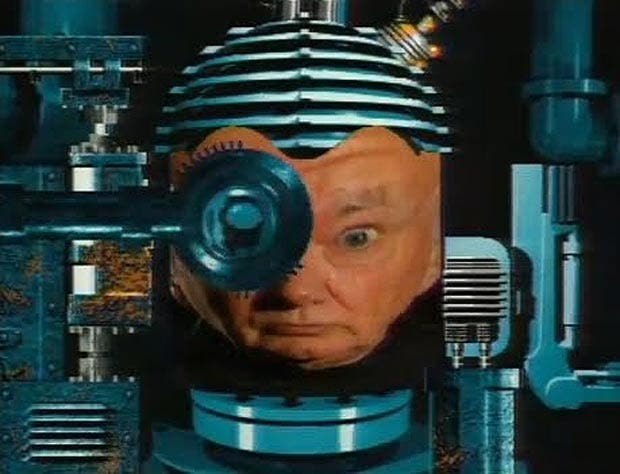
"I'd come up with a format that said there's a part human, part animated host but I didn't know who that was going to be," says Jane Hewland.
According to Dave Perry, the original plan was to hire a child. "We auditioned a load of kids but we couldn't quite find anyone who had the precociousness to carry off the role," he says. "We started to talk about quirky presenters and someone suggested Patrick Moore. It was the nearest we could get to finding a big baby to deliver the lines."
Watching the show now, it's hard to imagine the role of the GamesMaster being played by anyone else. Moore was the perfect foil for Diamond, rising above his schoolboy antics to bring order and authority to the proceedings. He could be stern as a Willans and Searle headmaster, but there was always a twinkle in his eye. Best of all, he was utterly believable as the fount of all video games knowledge when dispensing tips in the "Consoletation Zone".
"He didn't understand anything of what he was saying," says Diamond. "But he just nailed it. He did everything in one take; he was a machine."
"Patrick was a good sport," says Jonny Ffinch. "He had the general gist that this was a faintly subversive activity. He would pretend not to understand all the double entendres, but he did really."
"He was like the Boris Johnson of outer space."
Cameron McAllister, director
Director Cameron McAllister, who was so keen to avoid trying to be trendy, was thrilled to have Moore on board. "He was a massive coup because he was as uncool as you could get," he says. "He was hilarious, a completely eccentric old duffer. He was like the Boris Johnson of outer space."
Cynics might assume Moore was only in it for the money, but they'd be wrong. McAllister still remembers the salary negotiation: "Patrick said, 'Ah, yes. Well, I did something before and they asked me what my fee should be, and I told them, and we drank it.' That was his approach - a bottle of whisky."
Moore was never on the set of the live show. His sections were filmed separately over a couple of days and then he and the production team would go out to lunch.
"The lunches would go very much as lunches do with a lot of elderly people - you ask questions and you let them ramble on," says Ffinch. "He'd have a good bottle of wine and he'd be knocking it back all the time. I knew some things about his biography, so I would say stuff like, 'Patrick, is it true you signed up for the RAF when you were 16?' Or, 'Are you really a member of the Flat Earth Society?' and off he'd go.
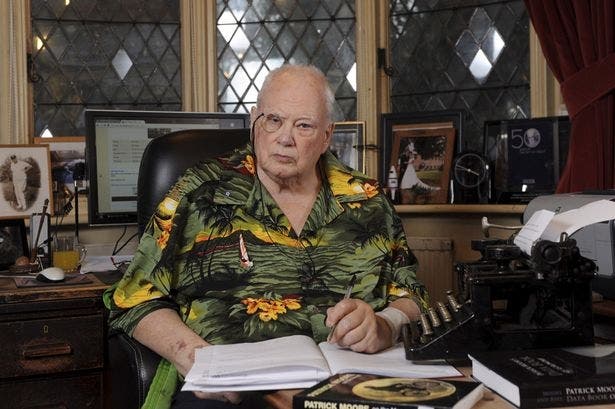
"He also had all these reactionary opinions that were half just to wind people up and half probably genuine convictions. Occasionally he'd say things like, 'Pinochet put that country back on its feet...' And you'd be like, 'Hmm, yeah, he also killed quite a few people...'
"You never knew whether he was just trying to get a rise out of you. I suspect he did actually believe it."
Diamond never attended the lunches. He only met Moore once, on the last day of filming. "We weren't hanging out down Sega World," he says. "It wasn't like he was coming round my house with a six-pack to play Sensible Soccer." So it was a strange experience to receive messages of condolence when Moore died last December.
"I got hundreds and hundreds of messages on my Facebook page, you know, 'Sorry for your loss' - like it was my granddad who'd died," Diamond says. "I forget that for viewers, the two of us were very close. Seeing the response, I had a kind of bizarre, post-modern sense of loss. I genuinely felt quite sad."
Moore was not the only fellow GamesMaster star Diamond didn't know personally. He never met Dexter Fletcher, the actor who hosted the third series after Diamond quit over the signing of a sponsorship deal with McDonald's. (Fletcher declined to be interviewed for this article.)
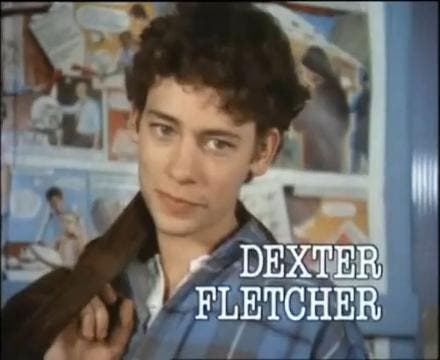
"My younger brother was a vigorous anti-McDonald's campaigner at the time," he says. "He would write his own posters and leave them in assorted McDonald's outlets in Milton Keynes. I'm not sure if that brought the company down, did it work? Anyway it was one of those things you did at the time - you seized on something and you decided, 'Right, that's going to be my political stand du jour.'" Diamond objected to the alleged deforestation, genetic modification of cattle, low wages - "All the things McDonald's have since stopped doing."
Jane Hewland has a different recollection of events. "Dominik left because he was being offered all kinds of things which conflicted with Channel 4's advertising rules," she says. "He couldn't present the show and take some of that lucrative work."
Diamond returned to the show for season four, despite the fact that the McDonald's deal was still in effect. But he continued his personal boycott of the company until 2011, when he was lured into a restaurant in Nova Scotia by the promise of free wi-fi. "I went in and the smell was just, oh my God. I had a Big Mac and fries. It was the best thing I ever tasted in my life. Sorry to disappoint people, but I did last till I was 41."
But what of Dexter Fletcher and season three? "I regard that as a lost series, really," says Hewland. "It was our fault for casting him. I didn't need an actor, I needed a stand-up comic. I needed what Dominik was. I made a mistake."
Diamond agrees: "Obviously, I didn't think Dexter was very good. But even if he was good, I wouldn't have thought he was very good, do you know what I mean? This was my show. It could have been Jonathan Ross and I still wouldn't have liked him doing it.
"I've never met Dexter," he continues. "I'm a huge fan of his work in Bugsy Malone. I can't imagine anyone else ever being Babyface. Not even Daniel Day-Lewis."
Watching Fletcher's GamesMaster episodes now, he can't be faulted for energy and effort. Plus his accent is a lot better than it was in Press Gang. But the performance is tinged with a kind of manic desperation, as if Fletcher can't wait for the whole thing to be over - which is how many viewers felt about his stint on the show. That feeling seems to persist today; the second comment on the above YouTube video, posted less than a year ago, is: "Dexter Fletcher sucks, bring back Dominik Diamond." (The first comment is, "OMG its Jet!")
However, according to Jonny Ffinch, the ratings for the Dexter Fletcher episodes were "probably as good or better" as those for the Dominik Diamond shows. "But that was largely to do with the hysteria for Nintendo and Sega," he says. "It was this crazy bunfight; people just went mental. I went to Tottenham Court Road and there were people running up and down with fistfuls of cash, desperately trying to get hold of these machines.
"Jane [Hewland] always said to me that we just couldn't put a foot wrong. If we'd written the word 'Nintendo' on the side of a pig, every kid in the country would have wanted it."
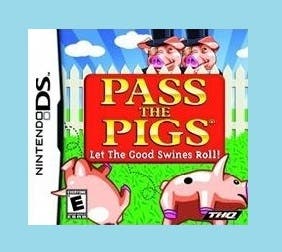
Hewland says her son, Harry, realised how big GamesMaster had become while coming home from school one day: "He walked past a row of houses and in each house he could see a little boy in front of a television, watching the show."
As the programme's popularity increased, so did the budget. "I can't remember exactly, but I think it was maybe £60,000 an episode," says Ffinch. "That was a lot of money in those days. You'd never get that kind of money now. No one would pay that for games programming."
Back when GamesMaster began, the £10,000 per episode offered by Channel 4 did not even cover the production overheads. Hewland's company was set to make a massive loss on each show. In a bid to make up the shortfall, she insisted on retaining the rights to everything except UK transmissions.
"That was really the making of the company," she says. "We had the phoneline rights, the merchandise rights, the licensing... We did the McDonald's deal, not Channel 4.
"Apparently, the day after the first show was broadcast, the guy who ran commercial affairs at Channel 4 came in and said, 'Tell me we have the rights.' And they had to turn round and say, 'No, we don't.'"
The extra budget meant the production team could spend more on the celebrities invited on the show. Not that it was tough to attract them, as Hewland recalls: "They were queuing up. The moment people think something's a cult, they'll come on. We could get anybody we wanted, pretty much."
The list of stars who appeared on GamesMaster reads like a Who's Who of 90s celebrities (Cathy Dennis! Tony Slattery! Danny John-Jules!). The show featured pop stars (East 17, All Saints, Imbruglia), sporting heroes (Stephen Hendry, Prince Naseem), comedians (Lee & Herring, Punt & Dennis) and all-round legends (Bob Holness, Michael Fish). Most of them seemed pleased to be on the show, but not all were easy to work with.
"Vinnie Jones was the only person I've ever played FIFA against who swore at the referee."
Dave Perry, Games Animal
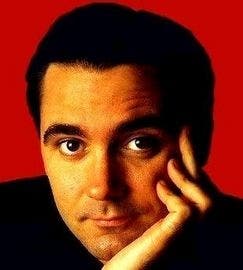
"Mr Motivator was a wanker," says Diamond. "He was one of those types who's all smiles for the camera and once the camera stops, he's a grumpy bastard."
The other guest who sticks in Diamond's mind is footballer Vinnie Jones. "The story goes that Vinnie would answer his phone saying, 'How much? Double it and come back to me,'" he says. "He was just doing it for the money. He was never a friendly sort."
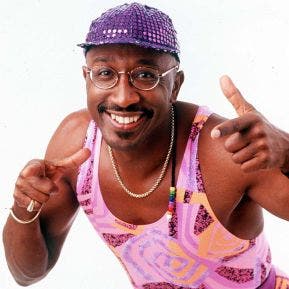
Perry agrees with Diamond on this one: "Vinnie Jones was the only person I've ever played FIFA against who actually swore at the referee in a video game. He was absolutely furious."
"The footballers were always a nightmare because their agents were absolute bastards," remembers Ffinch. "They would call up the night before and say, 'Oh no, so-and-so's not coming, but I do have this fifth division kid I can provide for the same money, otherwise you'll be pointing your camera at an empty seat.'"
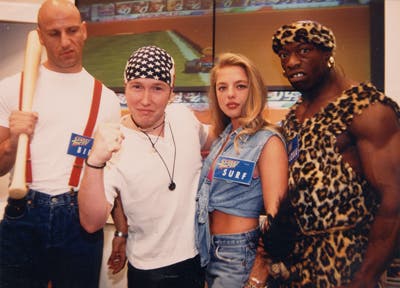
Perry's least favourite guest was the late wrestler Macho Man Randy Savage, "because he kicked us all out of the green room. No one was allowed in when he was there. We were like, what the f***?"
Boxer Frank Bruno, however, was happy to hang out. "He was quite excited about meeting me because he'd seen me on the show," says Perry. "He had three Dobermans at the time and we just sat there, chatting about his dogs."
Then there was the day they filmed a show with Dutch pop sensation 2 Unlimited (sample lyric: "No no, no no no no, no no no no, no no there's no limit").
"When celebrities arrived," says Perry, "the runners would always go up to them and say, 'Can I get you anything? Tea, coffee, something to eat?' And Ray [Slijngaard], the male singer, said, 'Could you get me some weed?'
"He was used to being in Amsterdam. He wanted to chill out. It hadn't occurred to him that you couldn't smoke in the UK. We had to explain you can't just send somebody out for weed over here."
So Slijngaard never got any? "No, he didn't," says Perry. "Although I wouldn't tell you if he did."
---
Dirty jokes, violent games, angry feuds, culturally ignorant dance music acts from the Netherlands demanding soft drugs... As the Games Animal would say, it sounds like quite a ride. But in 1998, it was game over.
"It was kind of mutual," says Jane Hewland of the decision to end GamesMaster. "Dominik had had enough, Jonny had had enough, I think the viewers had probably had enough. You get to a point with any television show where it's getting derivative and you can't think of anything else to do."
"We could feel the winds of fortune were changing," Jonny Ffinch says. "The ratings were pretty steady but they weren't stellar. The whole market was changing. It's a mature market now, and in many ways, not nearly as much fun."
"It's a mature market now, and in many ways, not nearly as much fun."
Johnny Ffinch, producer
So would GamesMaster get made if it was pitched today? "Definitely not," believes Ffinch. "Channel 4 is still probably one of the best network channels in the world, but it's not like it was in those days, when they would commission anything. It was crazy, in a brilliant way. It was genuinely experimental. I don't want to diss the channel, but I think it had a uniqueness in the early days that it has lost."
Having struggled to get GamesMaster on screens back then, Hewland agrees with Ffinch that it would be impossible now. "The big thing that's happening this year is things are getting made without broadcasters. House of Cards is the obvious example," she says. "But there's quite a lot of special interest stuff on YouTube, and I think that is the way it will go... Everything about games just meshes better with the internet than broadcast television."
In March 2010 Future Publishing, owner of the still successful GamesMaster magazine, dropped hints the show could be making a comeback. Since then nothing has been heard of the project. But GamesMaster is remembered widely and with fondness, and gaming is a more popular medium than ever, so why not bring it back?
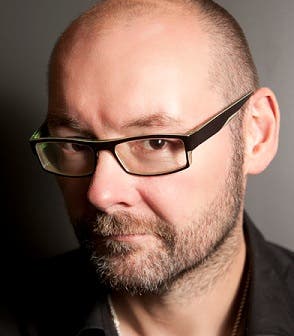
"Because it will be s***," says Dominik Diamond.
The first he heard of the proposed revival was via a press release that ruled out any involvement from him. "It's like the Rolling Stones reforming and saying, 'Mick Jagger? Yeah, f*** you. We'll get Adele.'
"That show worked because of the people involved in it. Even if you got all those people back, I don't know if it would still be good. It's very different, presenting a games show like that when you're in your 40s with three children. I'm not being arrogant or narcissistic. They can't make GamesMaster without me. Or without Jonny Ffinch and those other people. It would be crap."
Dave Perry is more optimistic that a remake could work. "A couple of years ago I was approached by a major production company that was looking at bringing GamesMaster back," he says. "They asked me if I wanted to be involved and I said yes. Why not? It would be fun.
"I'd happily think about doing it again in an almost Doctor Who manner - you know, how he dies every now and then and comes back as someone else. Maybe I could come back as the GamesMaster, or Dominik could. Patrick Moore's gone, but why not bring back one of the original faces for continuity?"
For now, however, the comeback seems to have been abandoned. "They pitched it to TV channels and everyone said, 'Nah, it sounds s***,'" says Diamond. "So that project is dead, as far as I know."
"I sold the rights to Future Publishing for that purpose," says Hewland. "I knew it wouldn't come back. I was hoping to take the cash. I know broadcasting well enough to know the moment has passed."
But the legacy of GamesMaster lives on. Not just in the hearts and minds of those who grew up watching it, but in other shows on television today.
"I often watch Top Gear now and think, 'This is GamesMaster,'" says Ffinch. "They've got a big industrial location, a live studio audience, they do a few reviews, they have a challenge. And they do these little features which really have nothing to do with reality and are just about cracking jokes. It's a good format."
So basically, Top Gear is GamesMaster with more cars and less knob jokes? "I think that's fair, yeah. And with less charming presenters. I can't stand those three."
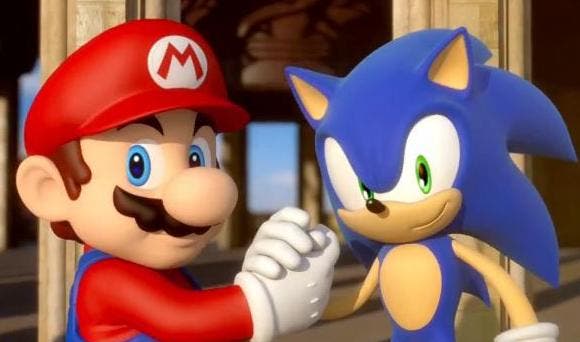
Cameron McAllister says that a few years ago he found his children watching the show on a digital channel, unaware he had directed it. "They liked it, which was very gratifying," he says. "It was one of the few occasions I've appeared cool in front of them. The graphics look quite old now but there's a kind of retro cool about it. To this day, people have a huge amount of affection for Mario and Sonic."
"It wouldn't have worked if we'd done it in the Spectrum and Amiga days," says Diamond. "It was just one of those things where forces converge together. It was phenomenal. Its reputation is untarnished and there are so few things in culture like that. Everybody always does a s*** sequel."
Everyone I interviewed agrees that GamesMaster benefited hugely from being around during what is often regarded as the golden age of gaming. As a consequence, so did they. But where are they now?
Diamond hosts a classic rock radio show in Toronto. He says no one in Canada has heard of GamesMaster. "People make references to it all the time on our radio station's Facebook page. The people I work with are like, 'What is this stuff you used to do? It's insane, it's all about cocks.' Well yeah, no change, so is my stuff now."
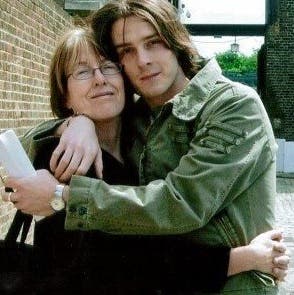
What with work commitments and three children, Diamond doesn't get much time to play video games. "I get these games I should love, like Left for Dead 2 or Arkham Asylum, and I put them on, and I'm like, 'Arrgghh, this is going to take hours.' I can put on FIFA and play for 20 minutes and it's great, I know exactly what I'm getting. My gaming is so tediously limited and unadventurous. It shames me."
Jane Hewland moved into television drama and had huge hits with series like Mile High, Daylight Robbery and Dream Team. Like GamesMaster, the latter was inspired by her son, who was a football nut as well as a gamer. "So it's really all down to being a single mother," she says.
Jonny Ffinch's most recent job was as visual effects producer on Frankenweenie, the animated Tim Burton film. Before that he was still working in television and teamed up with Hewland for various projects. However, he says, "The most valuable thing to come out of GamesMaster was my friendship with Dominik. I love him. He's one of my best friends. Oh yeah, and I did meet my wife."
Cameron McAllister also stayed in TV and continued to work with Hewland, but switched from directing to producing. Five years ago he became a writer and started penning scripts for shows like Hollyoaks and Emmerdale. He is about to publish his first book. "It was all a bit chaotic," he says of his time on GamesMaster. "But you wouldn't have it any other way."
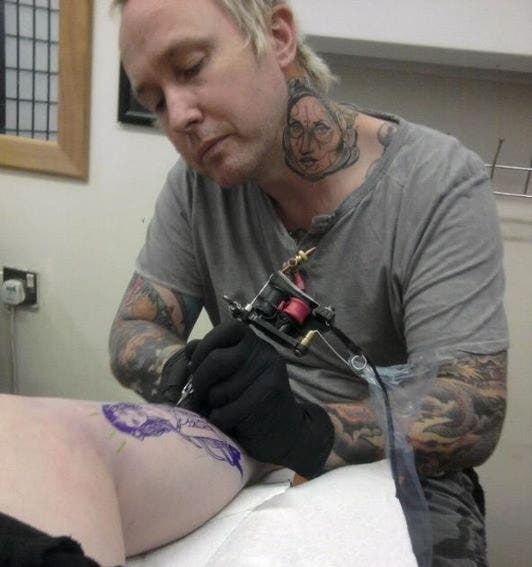
Dave Perry appeared in Hewland's other games offering, Gamesworld, but walked away from that show too ("There was too much compromising going on"). He launched a magazine called Station, which he says was the largest independent single-format magazine of all time. But when its publisher hit financial trouble and went under, Perry left the games industry for good.
Today he runs his tattoo shop in Torquay. Sometimes GamesMaster fans pop in to shake his hand. "A few months ago I had somebody come all the way from Scotland," he says. "They wanted me to sign the bandana they'd brought with them and they wanted a picture with me wearing it. That happens a lot."
Perry has been asked to do some video game tattoos, but not many. "I did a Street Fighter leg on somebody. I've done cute little Pac-Men and things like that on girls," he says.
"On the whole, I don't want to get into that. As much as some people affectionately remember me as being this love-hate character, there are people who hate me. I'm told there are things on forums where people have really strong opinions on me, and that's OK. But I don't want those idiots coming in here and asking me to tattoo f***ing Mario on them."
---
Not one of the people I spoke to remembers 10-year-old Craig Munro.
He is 29 now and has a child of his own. But that fateful moment when victory was snatched from his grasp feels like it was yesterday. It's the injustice of it all, he says. Craig is convinced the GamesMaster producers' plan was always to keep filming rematches until his sister won.
"To this day, people take the piss out of me for losing to my sister on television."
Craig Munro, TV star
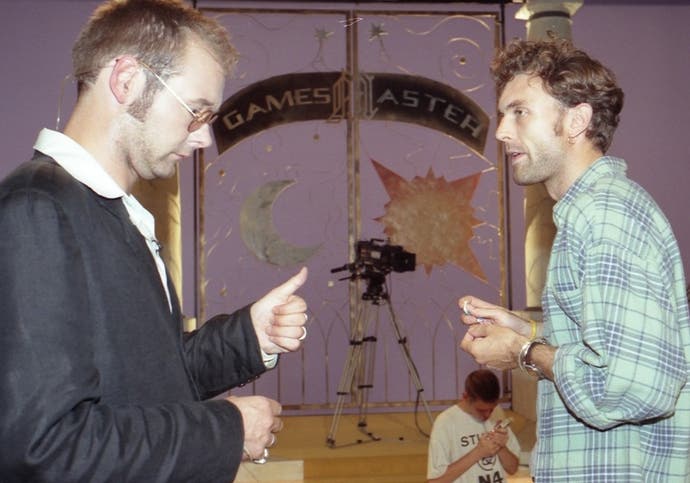
"That sounds absolutely right," says Cameron McAllister. "There is the faintest possibility that we were actually moral. It was just done so much on the cheap, we always had technical problems. But I suspect it made better television for the girl to beat him."
Jonny Ffinch is similarly unrepentant: "I'm afraid that any take in which a boy is beaten by a girl is going to be the one we'll use. Regardless of how much he's going to get bullied at school."
Once the GamesMaster overlords' thirst for brutal gender-based conflict was sated, it was Craig who had to pick up the bar tab. And that bill is taking longer to pay off than an Animal Crossing mortgage.
"To this day, people take the piss out of me for losing to my sister on television," he says.
There are ongoing repercussions for the siblings' relationship. They have mended the rift but the join is still visible, like the place where two Panini stickers meet. The comment by "discodancingkirsty" on the YouTube video of their challenge says it all. "i'm sorry craig," it reads, the author unable to see the Shift key through her tears, "i'm sorry."
Does Cameron McAllister have a message for Craig?
"Get over it," he says.
"Oh, poor Craig. Imagine being beaten by your sister, that's awful. You know what, he won't be alone. There must be hundreds of kids out there who we f***ed over."
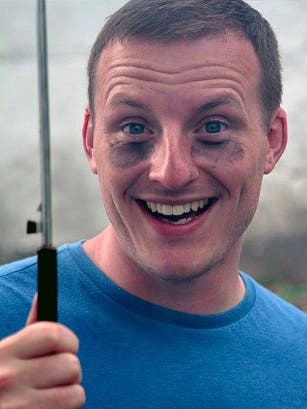
Perhaps McAllister, Ffinch and the rest knew what they were doing. Or perhaps they were just doing what anyone else would do when tasked with making a television programme about something there had never been a television programme about before in a disused church for 50p an episode featuring a 70-year-old Pinochet apologist, every knob gag ever invented and Kriss Akabusi.
Perhaps it doesn't matter, because despite all that pain and humiliation, something good came out of Craig's GamesMaster experience.
"Being on the show validated my hobby. I fell in love with games even more," he says. "Games were probably a gateway for me getting into the internet. That fed into wanting to learn how to make websites."
Today, Craig earns upwards of £100 a week working as a web developer for a little website you just might be familiar with. In fact, you literally are familiar with it, unless you are reading this article on one of those sites where they cut and paste our work without crediting us and we have to ring Jas the lawyer and he sends them an email and they take it down because they are 14.
"I've got really good memories of GamesMaster," says Craig, who has better teeth than his staff picture suggests. "It's nice to be able to say I was on it because when you talk about the show to people our age, everyone says they loved it. I don't know one person who didn't get a kick out of it.
"But yeah, I do still get s*** for losing."
